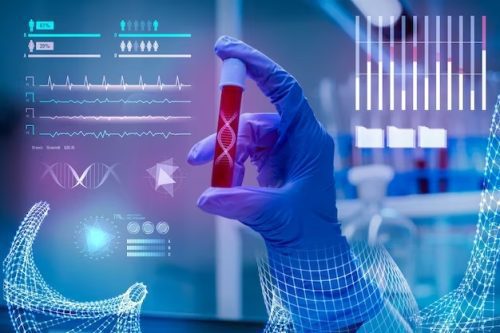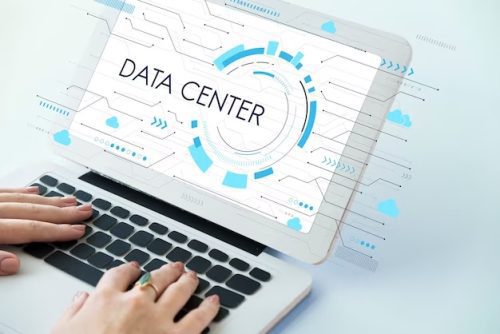Subscribe to Newsletter
Subscribe to Newsletter
Subscribe to Newsletter
Subscribe to Newsletter
Subscribe to Newsletter
Subscribe to Newsletter
Subscribe to Newsletter
Subscribe to Newsletter
Subscribe to Newsletter
Subscribe to Newsletter
Subscribe to Newsletter
Subscribe to Newsletter
Subscribe to Newsletter
Subscribe to Newsletter
Subscribe to Newsletter
Subscribe to Newsletter
Subscribe to Newsletter
Subscribe to Newsletter
Subscribe to Newsletter
Subscribe to Newsletter
Subscribe to Newsletter
Subscribe to Newsletter
Subscribe to Newsletter
Subscribe to Newsletter
Subscribe to Newsletter
Subscribe to Newsletter
Subscribe to Newsletter
Subscribe to Newsletter
Subscribe to Newsletter
Subscribe to Newsletter
Subscribe to Newsletter
Subscribe to Newsletter
Subscribe to Newsletter
Subscribe to Newsletter
Subscribe to Newsletter
Subscribe to Newsletter
Subscribe to Newsletter
Subscribe to Newsletter
Subscribe to Newsletter
Subscribe to Newsletter
Subscribe to Newsletter
Subscribe to Newsletter
Subscribe to Newsletter
Subscribe to Newsletter
Subscribe to Newsletter
Subscribe to Newsletter
Subscribe to Newsletter
Subscribe to Newsletter
Subscribe to Newsletter
Subscribe to Newsletter
Subscribe to Newsletter
Subscribe to Newsletter
Subscribe to Newsletter
Subscribe to Newsletter
Subscribe to Newsletter
Subscribe to Newsletter
Subscribe to Newsletter
Subscribe to Newsletter
Subscribe to Newsletter
Subscribe to Newsletter
Subscribe to Newsletter
Subscribe to Newsletter
Subscribe to Newsletter
Subscribe to Newsletter
Subscribe to Newsletter
Subscribe to Newsletter
Subscribe to Newsletter
Subscribe to Newsletter
Subscribe to Newsletter
Subscribe to Newsletter
Subscribe to Newsletter
Subscribe to Newsletter
Subscribe to Newsletter
Subscribe to Newsletter
Subscribe to Newsletter
Subscribe to Newsletter
Subscribe to Newsletter
Subscribe to Newsletter
Subscribe to Newsletter
Subscribe to Newsletter
Subscribe to Newsletter
Subscribe to Newsletter
Subscribe to Newsletter
Subscribe to Newsletter
Subscribe to Newsletter
Subscribe to Newsletter
Subscribe to Newsletter
Subscribe to Newsletter
Subscribe to Newsletter
Subscribe to Newsletter
Subscribe to Newsletter
Subscribe to Newsletter
Subscribe to Newsletter
Subscribe to Newsletter
Subscribe to Newsletter
Subscribe to Newsletter
Subscribe to Newsletter
Subscribe to Newsletter
Subscribe to Newsletter
Subscribe to Newsletter
Subscribe to Newsletter
Subscribe to Newsletter
Subscribe to Newsletter
Subscribe to Newsletter
Subscribe to Newsletter
Subscribe to Newsletter
Subscribe to Newsletter
Subscribe to Newsletter
Subscribe to Newsletter
Subscribe to Newsletter
Subscribe to Newsletter
Subscribe to Newsletter
Subscribe to Newsletter
Subscribe to Newsletter
Subscribe to Newsletter
Subscribe to Newsletter
Subscribe to Newsletter
Subscribe to Newsletter
Subscribe to Newsletter
Subscribe to Newsletter
Subscribe to Newsletter
Subscribe to Newsletter
Subscribe to Newsletter
Subscribe to Newsletter
Subscribe to Newsletter
Subscribe to Newsletter
Subscribe to Newsletter
Subscribe to Newsletter
Subscribe to Newsletter
Subscribe to Newsletter
Subscribe to Newsletter
Subscribe to Newsletter
Subscribe to Newsletter
Subscribe to Newsletter
Subscribe to Newsletter
Subscribe to Newsletter
Subscribe to Newsletter
Subscribe to Newsletter
Subscribe to Newsletter
Subscribe to Newsletter
Subscribe to Newsletter
Subscribe to Newsletter
Subscribe to Newsletter
Subscribe to Newsletter
Subscribe to Newsletter
Subscribe to Newsletter
Subscribe to Newsletter
Subscribe to Newsletter
Subscribe to Newsletter
Subscribe to Newsletter
Subscribe to Newsletter
Subscribe to Newsletter
Subscribe to Newsletter
Subscribe to Newsletter
Subscribe to Newsletter
Subscribe to Newsletter
Subscribe to Newsletter
Subscribe to Newsletter
Subscribe to Newsletter
Subscribe to Newsletter
Subscribe to Newsletter
Subscribe to Newsletter
Subscribe to Newsletter
Subscribe to Newsletter
Subscribe to Newsletter
Subscribe to Newsletter
Subscribe to Newsletter
Subscribe to Newsletter
Subscribe to Newsletter
Subscribe to Newsletter
Subscribe to Newsletter
Subscribe to Newsletter
Subscribe to Newsletter
Subscribe to Newsletter
Subscribe to Newsletter
Subscribe to Newsletter
Subscribe to Newsletter
Subscribe to Newsletter
Subscribe to Newsletter
Subscribe to Newsletter
Subscribe to Newsletter
Subscribe to Newsletter
Subscribe to Newsletter
Subscribe to Newsletter
Subscribe to Newsletter
Subscribe to Newsletter
Subscribe to Newsletter
Subscribe to Newsletter
Subscribe to Newsletter
Subscribe to Newsletter
Subscribe to Newsletter
Subscribe to Newsletter
Subscribe to Newsletter
Subscribe to Newsletter
Subscribe to Newsletter
Subscribe to Newsletter
Subscribe to Newsletter
Subscribe to Newsletter
Subscribe to Newsletter
Subscribe to Newsletter
Subscribe to Newsletter
Subscribe to Newsletter
Subscribe to Newsletter
Subscribe to Newsletter
Subscribe to Newsletter
Subscribe to Newsletter
Subscribe to Newsletter
Subscribe to Newsletter
Subscribe to Newsletter
Subscribe to Newsletter
Subscribe to Newsletter
Subscribe to Newsletter
Subscribe to Newsletter
Subscribe to Newsletter
Subscribe to Newsletter
Subscribe to Newsletter
Subscribe to Newsletter
Subscribe to Newsletter
Subscribe to Newsletter
Subscribe to Newsletter
Subscribe to Newsletter
Subscribe to Newsletter
Subscribe to Newsletter
Subscribe to Newsletter
Subscribe to Newsletter
Subscribe to Newsletter
Subscribe to Newsletter
Subscribe to Newsletter
Subscribe to Newsletter
Subscribe to Newsletter
Subscribe to Newsletter
Subscribe to Newsletter
Subscribe to Newsletter
Subscribe to Newsletter
Subscribe to Newsletter
Subscribe to Newsletter
Subscribe to Newsletter
Subscribe to Newsletter
Subscribe to Newsletter
Subscribe to Newsletter
Subscribe to Newsletter
Subscribe to Newsletter
Subscribe to Newsletter
Subscribe to Newsletter
Subscribe to Newsletter
Subscribe to Newsletter
Subscribe to Newsletter
Subscribe to Newsletter
Subscribe to Newsletter
Subscribe to Newsletter
Subscribe to Newsletter
Subscribe to Newsletter
Subscribe to Newsletter
Subscribe to Newsletter
Subscribe to Newsletter
Subscribe to Newsletter
Subscribe to Newsletter
Subscribe to Newsletter
Subscribe to Newsletter
Subscribe to Newsletter
Subscribe to Newsletter
Subscribe to Newsletter
Subscribe to Newsletter
Subscribe to Newsletter
Subscribe to Newsletter
Subscribe to Newsletter
Subscribe to Newsletter
Subscribe to Newsletter
Next-Generation Sequencing Data Analysis using Galaxy Platform
Unlock the Power of Genomic Data with Galaxy
Enroll now for early access of e-LMS
Online/ e-LMS
Self Paced
Moderate
1 Month
About
Next-Generation Sequencing (NGS) has revolutionized the field of genomics by enabling the rapid sequencing of entire genomes and transcriptomes. This program offers an in-depth exploration of NGS data analysis using the Galaxy platform, a powerful and user-friendly web-based tool. Participants will learn to navigate the Galaxy interface, perform quality control, align sequences, and interpret results. The course is designed to provide both theoretical knowledge and hands-on experience, ensuring that participants can confidently apply these techniques in real-world research settings.
Galaxy is an open-source platform that simplifies complex bioinformatics workflows, making it accessible to researchers without extensive programming skills. Throughout the program, participants will engage in practical exercises and projects that simulate actual research scenarios. By the end of the program, they will be equipped with the skills necessary to process and analyze NGS data, contributing to advancements in genomics, personalized medicine, and other cutting-edge fields.
Aim
The aim of the Next-Generation Sequencing Data Analysis using the Galaxy Platform program is to empower researchers and bioinformatics professionals with the knowledge and skills required to effectively analyze next-generation sequencing (NGS) data using the Galaxy bioinformatics platform. Through comprehensive training modules and hands-on workshops, the program aims to familiarize participants with Galaxy’s user-friendly interface, diverse toolset, and workflow capabilities for processing, analyzing, and interpreting NGS data. By providing practical training in data preprocessing, alignment, variant calling, and downstream analysis, the program enables participants to harness the power of Galaxy for genomics research, personalized medicine, and other applications in the life sciences.
Program Objectives
- Understand the principles and concepts of NGS data analysis.
- Familiarize participants with the Galaxy Platform and its tools for NGS data analysis.
- Gain hands-on experience in executing NGS data analysis workflows using Galaxy.
- Learn to perform quality control, read mapping, variant calling, and gene expression analysis using NGS data.
- Explore pathway analysis techniques and interpret the results.
- Develop the ability to construct and customize analysis pipelines in Galaxy.
- Enhance skillsDay1 in interpreting and visualizing NGS data analysis results.
- Learn best practices and optimization strategies for efficient NGS data analysis.
Program Structure
Module 1
- Introduction to NGS and galaxy platform
- Galaxy tools for genome assembly
- Galaxy tools for genome annotation
- Identification of Variants
Module 2
- RNA-seq analysis using Galaxy tools.
- Transcriptome assembly using galaxy tools like Hisat2 followed by Feature count
- Differential gene expression analysis using DESeq2
Students require to have good laptop with high-speed internet connection and They can create a user account in Galaxy portal (https://usegalaxy.org) using their academic email id.
Participant’s Eligibility
Biology, Biotechnology, Bioinformatics, Genetics, Genomics, Medical Sciences, and related fields
Program Outcomes
- Proficiency in NGS data analysis techniques using the Galaxy Platform.
- Improved understanding of bioinformatics principles and their application to NGS data analysis.
- Ability to navigate and utilize the Galaxy Platform for NGS data analysis workflows.
- Enhanced skills in quality control, read mapping, variant calling, and gene expression analysis using NGS data.
- Knowledge of pathway analysis techniques and interpretation of pathway analysis results.
- Competence in constructing and customizing analysis pipelines in the Galaxy Platform.
- Proficiency in interpreting and visualizing NGS data analysis results.
- Understanding of statistical analysis methods commonly used in NGS data analysis.
- Familiarity with functional annotation and enrichment analysis of NGS data.
- Development of troubleshooting skills to identify and resolve issues in NGS data analysis workflows.
Fee Structure
Standard Fee: INR 4,998 USD 110
Discounted Fee: INR 2499 USD 55
We are excited to announce that we now accept payments in over 20 global currencies, in addition to USD. Check out our list to see if your preferred currency is supported. Enjoy the convenience and flexibility of paying in your local currency!
List of CurrenciesBatches
Live
Certificate
Program Assessment
Certification to this program will be based on the evaluation of following assignment (s)/ examinations:
| Exam | Weightage |
|---|---|
| Mid Term Assignments | 50 % |
| Project Report Submission (Includes Mandatory Paper Publication) | 50 % |
To study the printed/online course material, submit and clear, the mid term assignments, project work/research study (in completion of project work/research study, a final report must be submitted) and the online examination, you are allotted a 1-month period. You will be awarded a certificate, only after successful completion/ and clearance of all the aforesaid assignment(s) and examinations.
Program Deliverables
- Access to e-LMS
- Real Time Project for Dissertation
- Project Guidance
- Paper Publication Opportunity
- Self Assessment
- Final Examination
- e-Certification
- e-Marksheet
Future Career Prospects
- Bioinformatics Analyst: Graduates of the program can pursue roles as bioinformatics analysts, where they utilize their skills in genomic data analysis and Galaxy platform expertise to support research projects in academic institutions, research organizations, or biotechnology companies.
- Genomic Data Scientist: With expertise in analyzing next-generation sequencing data, program participants can work as genomic data scientists, leveraging their knowledge to interpret genomic data, identify genetic variations, and contribute to research in areas such as cancer genomics, population genetics, and rare diseases.
- Bioinformatics Software Developer: Individuals with programming skills and a deep understanding of bioinformatics concepts can explore career opportunities as bioinformatics software developers, contributing to the development and optimization of bioinformatics tools and pipelines for genomic data analysis on platforms like Galaxy.
- Clinical Bioinformatics Specialist: As personalized medicine continues to advance, there is a growing demand for clinical bioinformatics specialists who can analyze genomic data to guide treatment decisions, interpret genetic test results, and contribute to precision medicine initiatives in healthcare settings.
- Research Scientist: Graduates of the program may pursue careers as research scientists in academic or industry settings, where they can lead or contribute to research projects focused on understanding the genetic basis of diseases, identifying biomarkers, and developing targeted therapies.
- Educator and Trainer: Experienced professionals in genomic data analysis and Galaxy platform usage may explore opportunities as educators or trainers, sharing their expertise through teaching, workshops, or curriculum development in academic institutions, training programs, or bioinformatics training initiatives.
- Entrepreneurship and Consulting: Individuals with entrepreneurial aspirations may establish bioinformatics consulting firms or startups, offering services in genomic data analysis, software development, or customized solutions for researchers and organizations in need of bioinformatics expertise.
- Academic Career: Program graduates may pursue academic careers, conducting research and teaching bioinformatics, genomics, or computational biology in universities or research institutions, contributing to the training of future generations of bioinformaticians and genomic researchers.
Job Opportunities
- Clinical Research Coordinator (Bioinformatics): Positions within clinical research teams to coordinate bioinformatics aspects of clinical trials, manage genomic data, and ensure compliance with regulatory requirements.
- Technical Support Specialist (Bioinformatics): Jobs providing technical assistance and support to users of bioinformatics software tools and platforms, troubleshooting issues, and providing training and guidance.
- Data Curator (Genomics): Roles involving the curation, annotation, and management of genomic data repositories, ensuring data quality, accessibility, and compliance with metadata standards.
- Scientific Writer (Genomics): Opportunities to write and edit scientific documents, manuscripts, grant proposals, and educational materials related to genomic research, bioinformatics methodologies, and Galaxy platform usage.
- Clinical Research Coordinator (Bioinformatics): Positions within clinical research teams to coordinate bioinformatics aspects of clinical trials, manage genomic data, and ensure compliance with regulatory requirements.
- Technical Support Specialist (Bioinformatics): Jobs providing technical assistance and support to users of bioinformatics software tools and platforms, troubleshooting issues, and providing training and guidance.
- Data Curator (Genomics): Roles involving the curation, annotation, and management of genomic data repositories, ensuring data quality, accessibility, and compliance with metadata standards.
- Scientific Writer (Genomics): Opportunities to write and edit scientific documents, manuscripts, grant proposals, and educational materials related to genomic research, bioinformatics methodologies, and Galaxy platform usage.
Enter the Hall of Fame!
Take your research to the next level!
Achieve excellence and solidify your reputation among the elite!
Related Courses

Artificial Intelligence for …

AI Applications in Pharmacy: …

SQL & Power BI Program: …

Data Visualization using …
Recent Feedbacks In Other Workshops
The course was more theoretical than practical.
nothing

